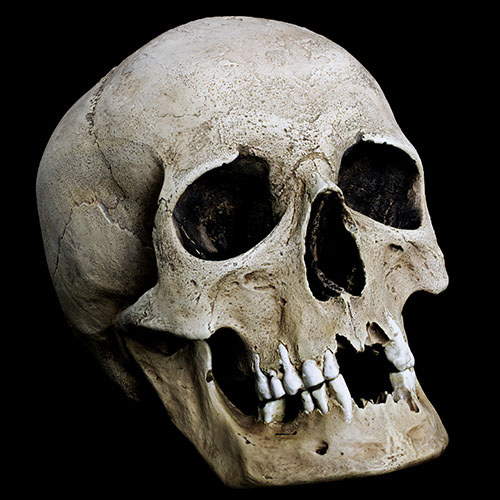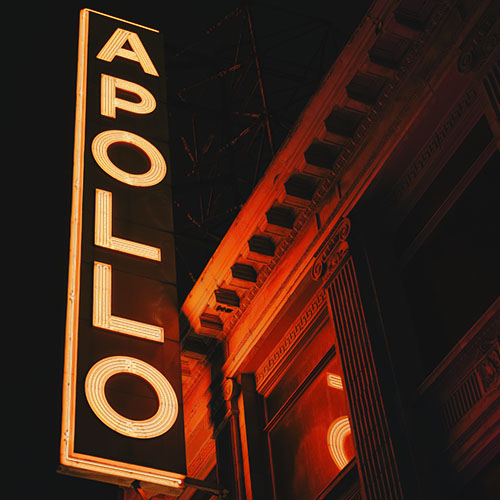Look behind the hype and a different, more ominous picture emerges. Cocaine use among the middle class may be declining, but heroin is making a comeback — with a vengeance.
Hard To Swallow: Heroin Trafficking
Reports on the drug war in recent years have turned optimistic, even a bit giddy. The government, for example, announced a plunge in the number of “casual” cocaine users. A nationwide survey found that 72 percent fewer people snorted or smoked the drug once a month in 1990 than in 1985. “Wonderful and welcome news!” crowed President Bush at the time.
Feeding new smack habits is an army of couriers unknown to the U.S. public but already moving thousands of kilograms of highly potent heroin through Customs. Say hello to the Nigerian heroin swallowers.
Largely ignored by Washington officials until recently, Nigerian body carriers are now arriving on dozens of flights a week at New York’s John F. Kennedy International Airport, their stomachs stuffed with heroin-filled balloons and condoms. U.S. Drug Enforcement Administration agents say that more than 25 percent of all heroin seized in the United States is smuggled in by Nigerians. Alarmed, the D.E.A. set up a covert “special operation,” based at its Washington headquarters, that’s devoted exclusively to investigating the Nigerian trafficking network.
“The numbers are staggering,” says Carol Hallett, commissioner of the U.S. Customs Service. “Nationwide, Customs officers arrested hundreds of swallowers [in 1990] who were trying to deliver their cargo of heroin to the streets of America.”
The White House tries to minimize the heroin threat, contending that there’s little demand for the drug. But agents on the street insist that the skyrocketing heroin supply — much of it imported by Nigerians — is attracting new customers. These agents say that federal estimates of 500,000 to 750,000 heroin addicts are outdated and laughably small.
In New York, the state Division of Substance Abuse finds that as heroin prices drop, more people in their twenties are trying it for the first time. Smokable, high-purity heroin from Southeast Asia eliminates the need for needles and the fear of disease, especially AIDS. Frazzled crack-users self-medicate with heroin, trying to soften the crashes that follow cocaine highs. Heroin, says D.E.A. official Felix Jimenez, will be “the drug of the nineties.”
Nigerian criminal groups, long notorious for their business acumen, are carving out a large piece of that growing market. Federal agents admit that they have been overwhelmed by the surge in Nigerian smuggling. They are scrambling to penetrate transatlantic conspiracies that range in size from three to three-dozen members and do business in such Nigerian dialects as Yoruba and Ibo.
Pacing in his modest office at D.E.A. headquarters, Jimenez, the agency’s chief of heroin investigations, searches for words to describe his frustration. The Nigerians remind him of Amway, he says, because of their efficient recruiting methods and lines of distribution. No, that comparison doesn’t do justice to the Nigerians’ awesome numbers. Finally, Jimenez declares, “It’s an ant army!” You can step on dozens of them, but there are more, many more, where they came from.
Nigerians detained because of suspicious behavior — such as not eating or drinking on long flights — are routinely arrested at Kennedy Airport with 60 to 80 condoms in their system, containing a total of about 700 grams (24 and a half ounces) of heroin. That amount costs as little as $5,000 in Bangkok, a notorious source of heroin, but can be sold to U.S. dealers for as much as $150,000 — a 2,900 percent markup.
Recruited in the United States, Europe, and Africa, Nigerian couriers receive $1,000 to $6,000 a trip. Some rookies get preflight coaching at “schools” in London and Lagos. These criminal-tutoring operations were founded to teach the document-fraud business but now include a basic course on drug ingestion.
First-timers practice by swallowing hundreds of jumbo-sized grapes at a clip. To prevent gagging, they learn to spray an aerosol anesthetic called Xylocaine on their throats. Then it’s down the hatch with heroin-filled balloons, condoms, or rubber-glove tips tied off with surgical suture thread or dental floss. (A variant on swallowing is “stuffing” — as in stuffing heroin into every available orifice.)
Swallowing mishaps, often dangerous, are always disgusting. A recent report in the English-language Kenya Times described the plight of one hapless Nigerian courier who was “stunned when five of the egg-balls [of heroin] oozed out of his anus unexpectedly. He was at a loss what to do, and while attempting to push the balls back, he was spotted” and arrested by security men at the Nairobi airport.
A leaky condom, on the other hand, can lead to an instant overdose. In June 1991 a 34-year-old Nigerian citizen named Ohuoha Uguru was arrested at Kennedy Airport and died hours later from heroin ingestion. An autopsy revealed 70 heroin-filled condoms in his body. Many more swallowers have died elsewhere, according to U.S. authorities.
“Like and army of ants, an awesome and seeming endless number of Nigerian heroin smugglers are feeding America’s overwhelming drug habit.”
Among those who have been caught in America have been dirt-poor peasants, “students,” and globe-trotting “businessmen.” The Nigerians’ latest gambit — according to John Dowd of the D.E.A.’s New York office — is hiring pregnant, white American women to swallow or stuff heroin. Traffickers in Lagos commonly enlist the services of relatives or friends in the States. An ongoing Customs Service investigation turned up a letter from one ringleader that provided instructions on flight etiquette to a young Nigerian living here.
“Dear Francis,” it begins. “Eat little, very little food in the plane. Avoid drinking a lot, both H2O and beer. You could take just [a] little H2O if need be …. God bless you.”
“It’s a different tone from your typical American or Colombian drug trafficker,” Bob Annunziata, a senior Customs Service agent, deadpans.
Nigerian traffickers supervising the swallowers are spreading quickly in the United States. In recent months they have been arrested in Boston, San Diego, Seattle, Raleigh, North Carolina, and even Anchorage, Alaska.
Heroin Elsewhere
The feds recently indicted 37 members of a Baltimore-based Nigerian ring that had allegedly smuggled an estimated $200 million worth of heroin into the country over the prior 18 months. Nigerians supply roughly half of the Baltimore and Washington, D.C., heroin markets, according to federal agents.
Nigerian swallowers are being caught driving and taking buses into Detroit from Windsor, Canada. But U.S. Customs officials there acknowledge that the huge majority of swallowers cross the heavily trafficked Michigan border undetected.
Customs agents in Dallas have smashed a Nigerian-connected ring that they allege had recruited area residents to swallow heroin in Hong Kong and then fly to a variety of U.S. airports. Lawmen in Houston in December 1991 linked more than two-thirds of the heroin being seized at that city’s international airport to Nigerian groups.
In August 1991, in the largest heroin seizure ever at Newark Airport, Customs agents arrested two sisters arriving from Sweden with about 40 pounds of the drug, worth nearly $20 million on the street. The women allegedly worked for a Nigerian group that shipped heroin from Thailand to Sweden and then into the States.
The English-language Nigerian magazine Newswatch, which is generous in its respect for that nation’s anti-drug efforts, nevertheless reports, “There is hardly any country of the world into which Nigerians have not carried this multibillion-dollar [heroin] trade.” The Nigerian government, according to foreign press accounts, has acknowledged that in the past decade, 15,000 Nigerians have been arrested on heroin charges worldwide. Recent arrests have been made in France, India, Italy, Japan, Singapore, and even destitute Togo and Burkina Faso. More than 200 Nigerians “may face [the] death penalty in Saudi Arabia,” according to Newswatch. Even the K.G.B. has asked for D.E.A. help in training drug agents, in part because Moscow has become a transshipment point for Nigerians on their way back to Africa from Asian opium-producing countries.
The prosecution of a small organization in the Washington, D.C., area provides a window on the Nigerians’ tactics. Co-conspirators in Lagos and the Hague sent small teams of couriers several times a week on flights through London to New York and ultimately to Washington’s National Airport. There they were met by a Maryland-based Nigerian who waited in a taxicab that he owned. Shuttled quickly to nearby hotel rooms or safe houses, the couriers unloaded the valuable contents of their digestive systems. The heroin was then collected and sold to one of the capital’s biggest street dealers.
Most of the half-dozen or so U.S.-based members of the group were related by blood, marriage, or tribe. They lived quietly in modest suburban homes and avoided violence. They sent most of their revenue back to family and colleagues in Nigeria and Europe, some of it in cash, some in fancy consumer goods to be sold on the Lagos black market.
“You don’t notice these people because they don’t build up a lot of wealth here,” says William O’Malley, the federal prosecutor in the case.
An informant’s tip prompted the F.B.I. — which shares drug jurisdiction with the D.E.A. — to install wiretaps on phones in the Nigerian suspects’ homes and the motel headquarters of the Washington dealer. From the bugs and other surveillance, the F.B.I. identified Olatunji Mosuro of Hyattsville, Maryland, as the ringleader. Sentenced to a seven-year term in the federal prison at Ashland, Kentucky, Mosuro had pleaded with the trial judge that he had never seen drugs in his life. “I am just a cabdriver,” he said amid sobs at his sentencing, according to press accounts. But F.B.I. agents noted that after extensive surveillance, they had never seen him pick up a fare.
Four Nigerians, including Mosuro, were convicted on drug-related charges and sentenced to prison. Not one Nigerian defendant cooperated with the government in exchange for reduced charges — a rarity in drug-conspiracy cases, but typical in those involving Nigerians. “They all seem to know each other, and they don’t talk,” says one Washington-based F.B.I. agent.
That loyalty extends far beyond the drug organizations, complicating any investigation of Nigerian traffickers. Lacking full-time translators fluent in Nigerian dialects to monitor wiretaps, the government is forced to hire outside contractors — usually Nigerian university students. But many prospects refuse to help the government, regardless of how much money they are offered. After interrogation and administration of lie-detector tests, others have been discovered to have personal links to the drug importers who are under investigation.
Nigerian organized-crime groups first attracted U.S. police attention around 1980 for their proficiency at defrauding credit card companies and printing counterfeit passports. “They make California driver’s licenses better than California,” says Arthur Stiffel, the Customs Service’s special agent-in-charge at Kennedy Airport.
Tens of thousands of Nigerians came to the United States as students or visitors during the Nigerian oil boom in the 1970s and early 1980s. When oil went bust in the mid-1980s, devastating the Nigerian economy, many of the emigres decided to stay here; a small but industrious minority turned to illegal activities.
In one scheme still very much in use, Nigerian criminals take jobs as security guards or office janitors — anything that gives them access to records, check stubs, and other documents that provide the information needed to apply for credit cards. Using post office boxes as return addresses, the thieves receive dozens of cards each and the shopping sprees begin. Customs agent Bob Annunziata estimates that Nigerian credit card fraud alone yields profits of $1 billion a year.
Operating in extended “families” based in East Coast cities, by the early 1980s Nigerian gangsters had become, if not the wealthiest or most violent, then “probably the most well-organized” ethnic crime group in the world, says Annunziata. It was only natural that these experts at false identification soon diversified into drug smuggling.
In the 1980s Nigerian traffickers went to Southwest Asia — especially Pakistan and India — to buy heroin wholesale. They were able to take advantage of business and personal relationships dating back to the days of British rule. More recently, the Nigerians have tapped plentiful heroin sources in Southeast Asia’s Golden Triangle: Myanmar (formerly Burma), Laos, and Thailand. Opium production in the Golden Triangle has quadrupled in recent years, reaching record annual highs of more than 3,000 metric tons, according to the U.S. government. Good weather, bumper poppy crops, and political insurrection in Myanmar — where some guerrillas protect the drug trade — have lately contributed to flourishing heroin exports.
The glut in the Golden Triangle market has translated into lower prices and higher purity, according to U.S. Customs intelligence specialists. U.S. government chemists have been astounded to find that some shipments have had purity levels exceeding 90 percent, allowing Nigerians to take huge profits as the heroin is “cut” on its way to the American market.
To be sure, Asian syndicates — including Chinese “triads” operating out of Taiwan and Hong Kong — are bringing the largest portion of Golden Triangle heroin into this country. But the Nigerians now rank a close second and are quickly expanding their market share. Two years ago Customs authorities at Kennedy and Newark airports seized 1,100 pounds of heroin; nearly half of that was from Nigerians or their associates.
The Nigerians are growing less predictable, according to U.S. agents who have taken the time to study them. They now fly into this country by means of a large number of European and Canadian cities, making the job of stopping them at U.S. borders increasingly difficult. Still, Nigeria Airways — which flies into Kennedy Airport — remains a dependable target for U.S. authorities hunting for swallowers.
The airline first came to public attention several years ago, when one of its pilots was arrested. John Billy-Eko initially made it through Customs with other crew members, but a diligent U.S. inspector followed and stopped him. A search revealed that he had hidden heroin worth $4 million in his trench coat and flight bag. He was convicted and sentenced to a ten-year prison term, according to U.S. authorities.
“The X-ray of a suspected swallower reveals his stomach’s contents. At the hospital, he tries to do one thing — not move his bowels.”
D.E.A. analysts periodically study Nigeria Airways flight manifests, comparing the names of passengers getting on the plane in Lagos and getting off in New York. On some of these flights, more than half of the passengers have changed their identity between takeoff and landing. “They’re doing something illegal,” says an analyst in the D.E.A.’s New York office, “and a lot of it’s got to be drugs.”
In an echo of the John Billy-Eko incident, a routine Customs inspection in August 1991 turned up three and a half pounds of heroin strapped to the body of the purser of a Nigeria Airways jumbo jet that had just arrived at Kennedy Airport. U.S. agents temporarily impounded the jet and fined the airline $56,000. (Nigeria Airways officials declined to return repeated telephone calls seeking comment for this article.)
If U.S. agents thoroughly searched every Nigeria Airways flight, they would probably average ten to 12 arrests per arrival, the agents estimate. Limited manpower precludes that type of attention, however, and much of the responsibility for identifying swallowers falls to uniformed Customs Service inspectors.
Not that picking out suspects is all that hard. The “profile” includes nervousness, lack of luggage (or, in some instances, super-expensive carry-on bags), and apparent physical discomfort. Agents say that inexperienced swallowers frequently stand frozen in front of the Customs gates, staring straight ahead in the hope of spotting their handlers. “They sweat a lot,” says one investigator.
The courts have ruled that travelers who provoke “reasonable suspicion” may be stopped and asked if they will submit to a voluntary search. For suspected swallowers, this means a spin past the X-ray machine, which easily picks up such stomach contents as heroin pellets. If discovered with a bellyful, the swallower is typically taken to a 17-bed airport “hospital,” where all of the patients do one thing: try not to move their bowels. One determined detainee held on for 29 days, according to Customs Service lore.
To make a formal arrest, agents have to have the drugs in hand. Needless to say, no one volunteers for hospital duty. The place smells of sweat and excrement, says John Varrone, a supervisory Customs agent. The cops wear rubber gloves, he adds, but they still fear that they’ll pick up diseases, especially AIDS. Some agents have been temporarily felled by nausea, in fact, but nothing worse.
Nigerians are famous for going to unparalleled lengths to deny the obvious. Some try to re-swallow the pellets they’ve just passed. Others insist that they don’t know what heroin is — they thought they were smuggling diamonds, not drugs. One story comes up so frequently that it must be part of Heroin Swallowing 101. The suspect, the tale goes, was planning to visit relatives in the United States. At the Lagos airport, he lost his airplane ticket and began to weep. A strange, wealthy man approached and offered to buy him a new ticket if the traveler would smuggle some heroin. “We hear that one all the time,” says one agent. “They don’t know who the source is, or where the drugs are going at this end…. They don’t know nothing. At least that’s what they say.”
The Nigerian government concedes that it has a drug problem but claims that U.S. authorities are demonizing African couriers who, after all, are only responding to the American appetite for drugs.
Nigerians express outrage at being singled out for special attention at U.S. airports. In one celebrated case, the country’s Nobel Laureate in literature, Wale Soyinka, said he was humiliated by U.S. Customs inspectors who searched him for drugs at Kennedy Airport.
“A loutish, almost visibly gloating Customs officer plunged into my baggage like a dog rooting in compost,” Soyinka said, according to the Reuter wire service. The author said such screening was “not only obscene, but clearly illegal” — a view not shared by American investigators or judges.
Yinka Adeyemi, secretary-general of the Organization for the Advancement of Nigerians, Inc., based in Brooklyn, New York, complains of “unfair Nigeria-bashing” by the U.S. media (including this reporter), which “are quick to judge a country of 125 million people by the work of a handful.” The D.E.A.’s estimate that Nigerians supply 25 percent of the U.S. heroin market is “absurd,” says Adeyemi.
The military government in Lagos used a well-polished Washington public relations firm to put a positive spin on any bad news about drugs. John Aycoth, president of Edward Aycoth Worldwide, conceded that West Africans have become major players in the heroin trade but stressed that couriers from Ghana and elsewhere now use Nigerian passports, unjustly bringing shame on the Nigerian people. Aycoth provided Nigerian press reports of a mysterious “drug baron” who actually controls most, if not all, of that country’s heroin business, implying that one bad man has besmirched the reputation of an entire nation. The D.E.A., which has an office in Lagos, summarily dismisses this claim as fantasy.
In 1990 the Nigerians set up a special anti-drug agency designed to be insulated from the corruption that envelops nearly all officialdom in the country. The Nigerian agency has worked with Thailand to more carefully scrutinize the hundreds of Nigerians who travel to Bangkok each week, many of them carrying suitcases stuffed with currency. The first chairman of the new National Drug Law Enforcement Agency, Fidelis Oyakhilome, visited the United States and courted congressmen. In return he got enthusiastic letters of admiration.
In 1991, however, Oyakhilome was forced to leave office when he was accused of taking bribes in exchange for leniency for jailed traffickers in Lagos. Aycoth said that the official “was completely cleared” of the charges, although an acting chairman — the retired police commissioner of Lagos — has taken Oyakhilome’s place. The Nigerian government has reported several big heroin and marijuana seizures at the Lagos airport, and Nigerian agents “feel like they’re making a dent” in the illicit trade, said Aycoth.
But the Nigerian connection continues to expand and take new forms. As U.S. authorities struggle to intercept waves of human heroin packages, the Nigerians are switching to larger-volume shipments.
The F.B.I. says that smugglers are bringing in pounds at a time in hollowed-out wooden carvings. According to international news reports, drug peddlers in Lagos are using tins of tomato puree and sardines and packets of biscuits to conceal their wares. Agents in New York stopped a nine-year-old Nigerian boy sent from Lagos with heroin valued at $9 million hidden in his steamer trunk. The boy’s mother in Lagos was implicated but never caught. In Houston a Nigerian man was arrested after $2 million worth of the drug was found packed into two six-volt batteries.
Intelligence passed to U.S. authorities by Thai police indicates that Nigerians are buying more than 20,000 pounds of heroin a year in Bangkok. Says Arthur Stiffel of the Customs Service, “We’re having trouble figuring out where the big loads are…. The volume in cargo containers and luggage has got to be much more” than current seizures are indicating. Even more ominous, recent Nigerian press reports note that the country’s traffickers are beginning to move Latin American cocaine.
Under increasing pressure in the United States, Colombian cocaine cartels are desperately trying to expand their European market. The collapse of Communist barriers and the scheduled relaxation of border restraints throughout the Continent will facilitate this push. The Nigerians — who have considerable experience traveling through Europe on their way to the United States — offer a relatively low-cost distribution service. Lagos and Bangkok provide highly corrupt hubs with big international airports.
A marriage of Colombian coke and Nigerian smugglers: It makes perfect business sense.
This article obviously appeared originally in Penthouse Magazine in February of 1993. Looking for more contemporary statistics on heroin usage in the United States provided an interesting overview. In what seems like a large percentage, maybe, 0.4% of people over the age of 12 would admit to heroin usage in the past year. In that same time period, 0.4% of the people also had a heroin use disorder. … You don’t need to be a statistics major to figure out you really do not want to be playing around with this drug.






















